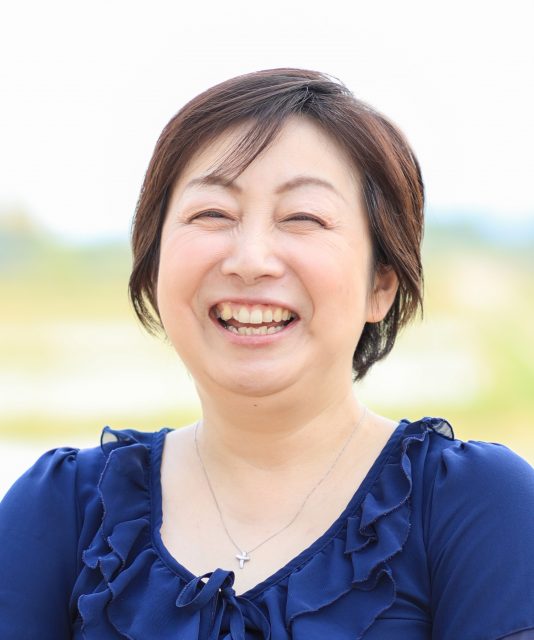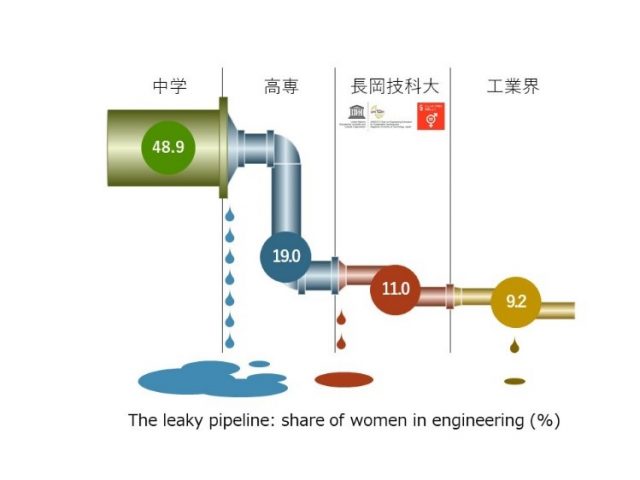A massage from Office Head
New Manufacturing (Monozukuri) in Reiwa Let us aim at an environment with diversity Inaugurated in 2020 Nagaoka University of Technology Office for Gender Equality
Office Head: YAMAMOTO Maki (Associate Professor of Bioengineering)

Japan and the entire world are threatened with COVID-19. Activities and situations deemed normal a year ago are no longer normal at all. To adapt and survive in the post-coronavirus era, an urgent need exists to reform social systems drastically. A global ranking of gender equality by the OECD set Japan as 121st: a very low ranking. Japan’s male-centered monocultural social structure retains a mind-set and norms originating from that structure, which is regarded as hindering increased productivity of Japan and the development of economic activities. During creation of new ideas and new values, even our school of engineering demands a system to advance manufacturing in a diverse environment in which women and people of other nationalities and different fields gather and collaborate. Nagaoka University of Technology established its Office for Gender Equality in 2018 and its Committee for Gender Equality in 2020 to foster development of practical engineers with a sense of diversity and to create university systems for that purpose.

The current low share of women engineers in Japan represents an important social problem. As the diagram from the White Paper on Gender Equality 2018 shows, women engineers account for 9.2% of all engineers. Although the percentages of men and women are almost equal at the junior high school level, as education and careers advance, the latter decreases as though it were water leaking from a pipe. That is particularly noticeable for engineering. The share of women must be increased to make full use of diverse abilities and values. The core of the difficulty is deep-rooted: it is not a mere matter of preference. To resolve the difficulty, we must have the process and strategies to ascertain reasons for the low percentage of women and to untangle the threads of the deep-rooted difficulties one by one.
The university has actively conducted international exchanges since its founding and has concluded academic cooperation agreements with more than 100 institutions. International students account for more than 50% of all doctoral students. However, women students account for 10–11%, an amount that has not changed much in the past ten years. The percentage of women faculty staff members is also low: 8.4%. The Office for Gender Equality has gradually established a system to provide support for life events such as childbirth and childcare, thereby improving the environment in which women can continue to study and choose to be engineers, or continue to conduct research. We will continue to work to improve the support system further and to promote change in awareness among widely various individuals, from faculty and other staff members in management positions to students.
